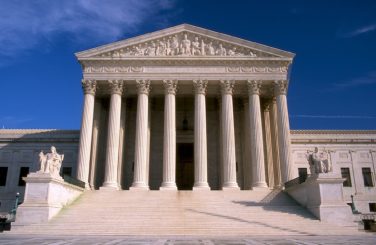
Editor’s Note: As 2019 draws to a close, we are posting CSA staff selections of the most memorable articles of this year. Today’s selection was chosen by Nikki Toyama-Szeto, Executive Director of Christians for Social Action.
Nikki writes: In the midst of the “did he, did he not” conversation, I felt like Joshua Pease’s article touched on a special dynamic: that 1 out of every 3 or 4 people experience sexual assault, and the people in our pews, our churches are watching how people talk about this. Because they might be asking the question, “Are you safe for me to talk to about this?” It’s just been a powerful reminder to me, and I have thought about that often throughout the year.
There are three guarantees in life: death, taxes, and that no matter how awful the news, social media will find a way to make it worse. Because I’m a freelance journalist who spends hours each day online, and because the topic I write about is sexual abuse in religious environments, I’ve been closely following the Kavanaugh judiciary hearings…and the response of Christians on Facebook and Twitter. It hasn’t been fun.
In the course of my work, over the past six months, I’ve interviewed multiple survivors of sexual assault. I’ve listened to their stories, heard about the physical, spiritual, and psychological damage affecting them years later, and—most heart-wrenchingly—heard how often the church communities in their lives made the abuse worse. Sexual abuse is a tragedy. When the church tells survivors—directly or indirectly—that the abuse was their fault or not a big deal, it’s an abomination from the pit of hell that warps survivors’ understanding of both their intrinsic value and God’s compassion for them.
Sexual abuse is a tragedy. When the church tells survivors—directly or indirectly—that the abuse was their fault or not a big deal, it’s an abomination from the pit of hell.
All of which is to say, the way Christians talk about sexual abuse matters to me—a lot. And as I’ve watched what’s been happening online, I’ve seen three problems with the way many Christians are framing the current Kavanaugh mess.
1. Kavanaugh is, more than likely, not a monster.
One of my favorite lines from the Harry Potter books is when Sirius tells Harry, “the world isn’t split into good people and Death Eaters. We’ve all got both light and dark inside us. What matters is the part we choose to act on. That’s who we really are.”
This is a deeply biblical way of understanding humanity. On one hand, we are stamped with the Imago Dei, created in God’s image, light-bearers. On the other hand, since Genesis 3 we have been separated from God’s love, mired in shame that has turned outward to hate, greed, selfishness, and self-justification.
In the current conversation about Brett Kavanaugh, we are being asked to join one of two camps:
1) Brett Kavanaugh is praised by dozens of women as being a good man and has lived a highly respected life. Because of this, it’s impossible he could have assaulted Dr. Christine Blasey Ford as accused.
2) Brett Kavanaugh is an entitled, grown-up frat-boy who is used to having his own way, even to the point of committing sexual assault.
It’s possible that one of these narratives is correct, but what bothers me is the failure of Christian thinking behind them.
Throughout the Bible, we see “good men” do terrible things—perhaps most famously, King David. David was a “man after God’s own heart” who also abused his position of power to force a woman to sleep with him and then killed her husband in an attempt to cover up his sin. God’s judgment toward David is severe, and the amount of pain and division that came from David’s poor choices rippled forward for generations. Which is to say this: Kavanaugh may have lived an upstanding life for decades, but that doesn’t mean he’s incapable of acts that have serious consequences. Thinking otherwise is a failure to think biblically.
2. No, it’s not unbiblical for there to be consequences without multiple witnesses.
Recently, a friend posted a video on Facebook of a pastor’s sermon, declaring not only that the Bible demands multiple witnesses before someone can be found guilty of a crime, but also that the Kavanaugh hearing falls short of this standard—and thus Christians are therefore compelled to support Kavanaugh in this instance. But there are multiple problems with this line of reasoning.
One, as has been said repeatedly, what is taking place with the Kavanaugh hearings is not a trial, but a job interview. Our court systems have a deeply imperfect, but well-intentioned system that—in theory—demands that guilt beyond a reasonable doubt be proven to a jury of peers before someone can be convicted of a crime. A job interview, however, specifically a job interview for one of the most important, lifetime appointed, positions in the country, carries a far lower burden of proof. The question is not about guilt, but whether a person is the absolute best candidate for a job.
I fall strongly in the camp of “don’t squeeze the Bible into cultural conversations it doesn’t address,” but if we have to find the closest biblical parallel, it would probably be better to look at the biblical qualifications for an elder in the church, where—similar to an appointment to the Supreme Court—a person’s reputation in the community is a key factor in their worthiness for the role. In other words, if multiple witnesses say that during his college years, Kavanaugh was a heavy drinker who became deeply combative and violent and that he hung out with guys who bragged about their sexual conquests, that’s all fair game.
Two, the Bible doesn’t consistently require multiple witnesses for guilt! In Deuteronomy 22:25-27 we’re told if a man rapes an engaged woman in a field, he should be put to death, and nothing should happen to the woman. And in case the hypothetical setting here isn’t clear, it clarifies that in this case the woman cried out, but there was no one there to save her.
In other words, no witnesses. Now I’m not suggesting we implement this standard of guilt into our current judicial reality—again, I’m in the “don’t shove the Bible into contexts it doesn’t speak to” camp—but for Christians bemoaning the #metoo movement and men who are falsely accused (something that, statistically, happens less than 2% of the time), it might be worth wrestling with this passage from Deuteronomy.
3. The Supreme Court isn’t the highest priority.
This is the point about which I’m the most passionate. What has grieved me to the point of tears has been Christians willing to sound off on support of Kavanaugh, without considering their audience. Statistically, 1 in 4 women and 1 in 7 men have experienced some form of sexual abuse in their lifetimes. Many of these people have told no one about their abuse, and many others (until recently, myself included) go most of their lives telling only their spouses or a therapist. In other words, there are literally dozens of people (or more) in each Christian’s life who have been sexually abused, and who are consciously or subconsciously now absorbing how that Christian treats the claims of Dr. Ford.
Which leads me to what is really the only important question Christians should be asking right now: Is the church called to be a safe place for sexual abuse victims, or a lobbying force for political power? There’s an obvious right answer here, but the actions of many Christians on social media suggest they care far more about protecting their political camp than they do about letting abuse survivors know: “You will always be safe with me, I will always listen, I will do everything I can to advocate for you.”
…the actions of many Christians on social media suggest they care far more about protecting their political camp than they do about letting abuse survivors know: “You will always be safe with me, I will always listen, I will do everything I can to advocate for you.”
Social media separates our words from their consequences and turns people into allies or obstacles for our self-esteem and self-righteousness. In this, I am the chief of sinners. But if there’s one thing I’m dogmatically committed to doing, it’s making sure that all sexual abuse survivors know this, and know it clearly: just one soul finding healing in a church community is more important than any Supreme Court seat.
Would that this was true for all Christians.
 Joshua Pease is a writer, speaker, and former evangelical pastor living in Colorado with his wife and two kids. Follow him on Twitter.
Joshua Pease is a writer, speaker, and former evangelical pastor living in Colorado with his wife and two kids. Follow him on Twitter.


